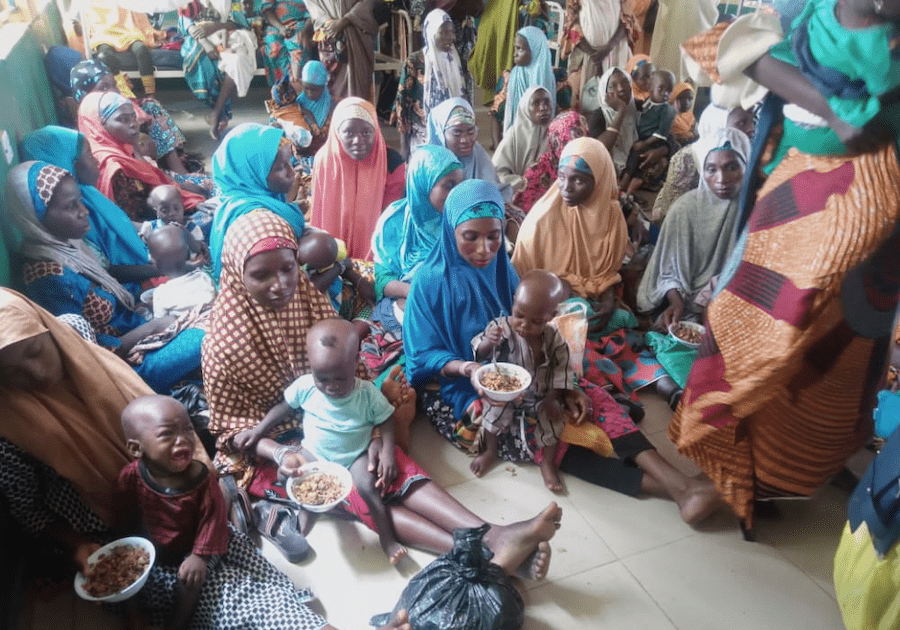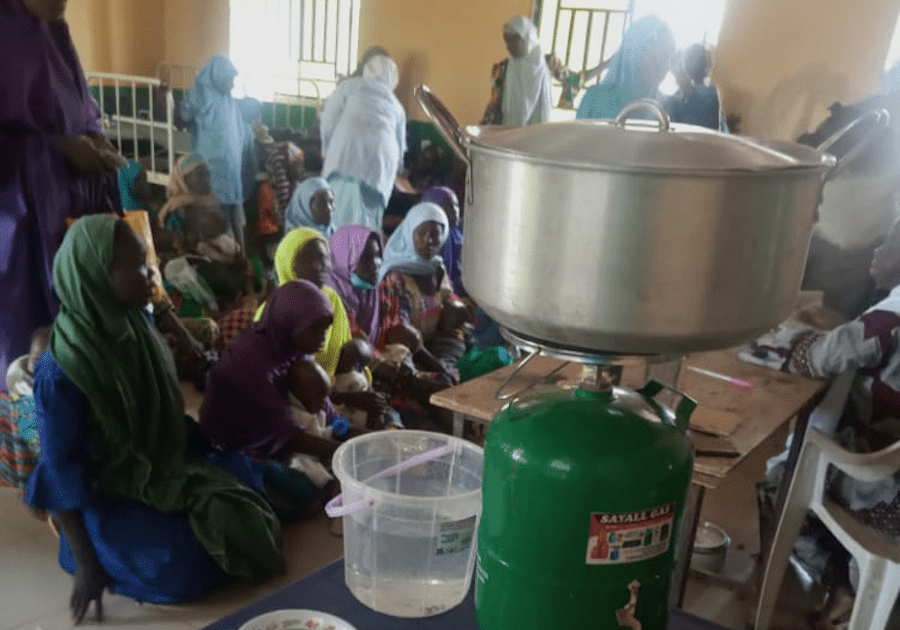Nigeria Juliana Joel Na'Allah

I deal with many cases of Severe Acute Malnutrition (SAM) in adults and children, but a single case stood out to me, and I felt like I had to step in and give an extra helping hand.
A STORY THAT I WON’T FORGET
Dealing with many cases of Severe Acute Malnutrition (SAM) in adults and children, a single case stands out to me where I felt like I had to step in and give an extra helping hand. An 18-month-old boy was brought into our facility with severe malnutrition by his mother who did not speak any English and had no money to pay for treatment or buy food. There was also no F-75 or F-100 available which are therapeutic milk products that are designed to treat SAM. The mother spoke Hausa, a Nigerian language spoken by Hausa people based in Chad, Ghana and Cameroon. Luckily this is a language I speak too, and I was able to communicate with her.
My colleagues and I gathered to discuss how we can support her. We managed to raise some money for food and started full treatment for the child at a government facility. We used food that is locally available as an alternative to F-75 and soon the little boy was 5kgs heavier – by the time he was discharged 3 weeks later, he was up by 9kgs. This was a tremendous improvement, and I was so happy with the results and the health of the child. To ensure continuous proper feeding, we were able to mobilise some funds for the mother who started a business to feed her family.
HOW I GOT TO WHERE I AM TODAY
I have 15 years of experience working with the Ministry of Health for Kaduna State. I have a master’s degree (Health Management and Information), a Post Graduate Diploma (Public Health) and a Higher National Diploma (Public Health Nursing).
My studies have led me to become a registered nurse/midwife and a community health extension worker. I also have experience in capacity building, supporting, and engaging with different communities as well as civil societies. Being a creative thinker and having great leadership skills have led me to manage teams, work in groups, and mentor and help others improve their skills.
To do this kind of work you need to be well educated in the field of Nutrition. You need to know nutrition assessment, how to diagnose a patient, intervention skills as well as nutrition monitoring and evaluation. You also need to have good problem-solving skills and be able to think on your feet.
THE CHALLENGES MAKE IT WORTH IT
There are many challenges we as health workers face on a daily basis. These include inadequate logistics or negative attitudes from patients who refuse to accept treatment or prescription medication. Through perception management and encouragement, the patients are likely to change their minds and allow us to treat them to improve their condition or situation. Another challenge we face is trying to combat poor nutrition. Many people fail to take healthy eating seriously and nutritionists are constantly educating and stressing the importance of healthy eating and the consequences of not doing so.
JOB SATISFACTION
My job makes me feel like I’m making a real difference in patients’ lives in a healthy way. Even after treatment, I make an effort to monitor and check up on patients to keep track of their progress and ensure they are doing well. I am also thrilled to hear when patients meet their health, nutrition and weight goals based on the programmes they receive and are motivated to start a new lifestyle based on the advice we give them for a healthy future.
My hopes are high for the health of the community in Nigeria. I hope parents/guardians will enforce healthy eating in their children from birth by providing them with healthy, affordable eating options and limiting their consumption of sugary drinks and saturated fats. They should also ensure their children get adequate physical exercise and are active as possible.

